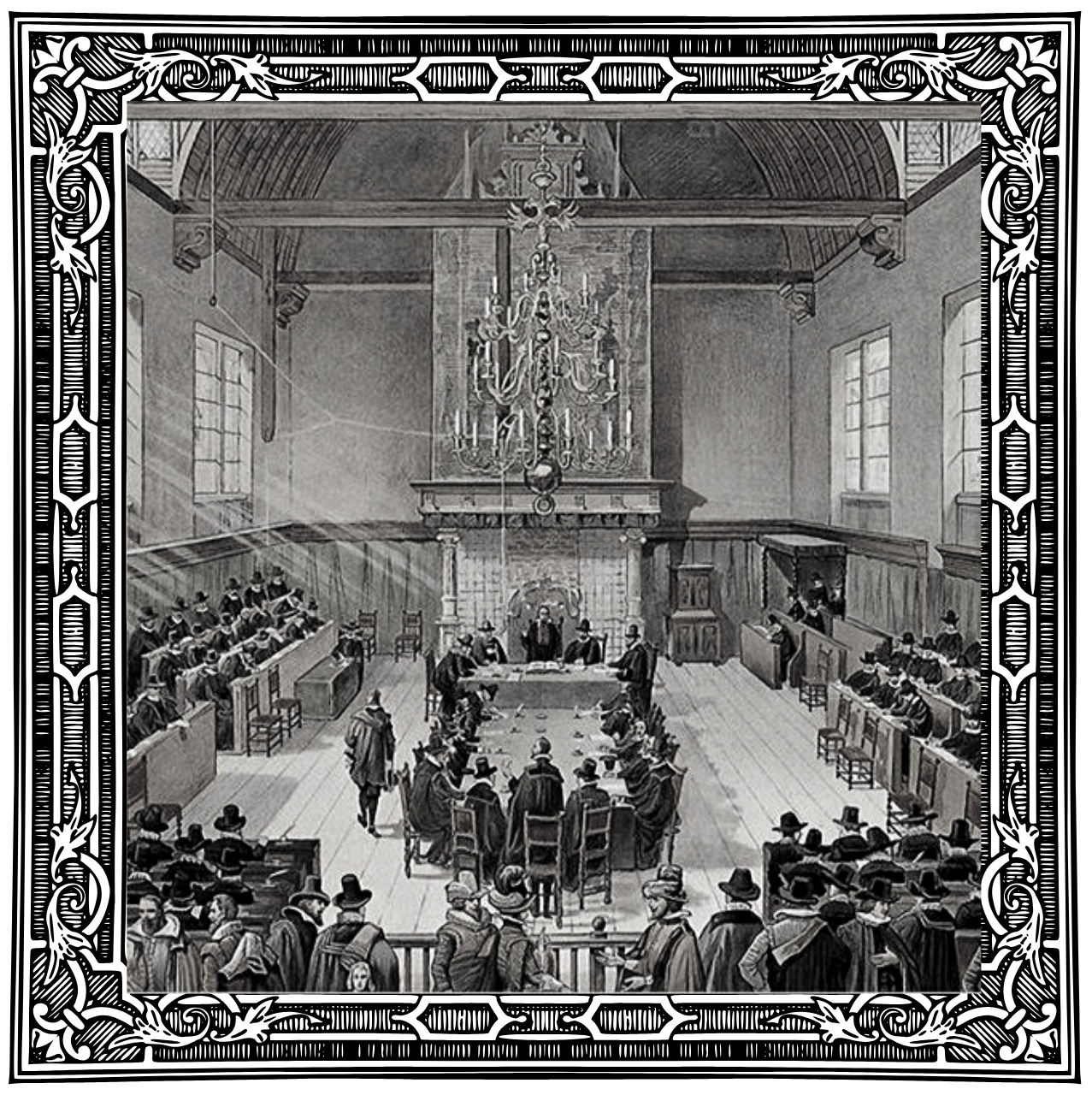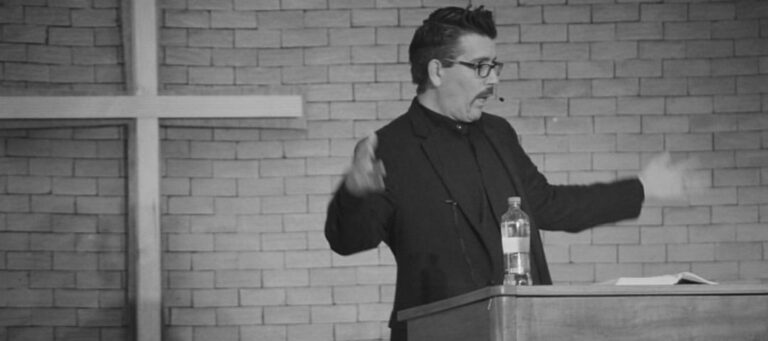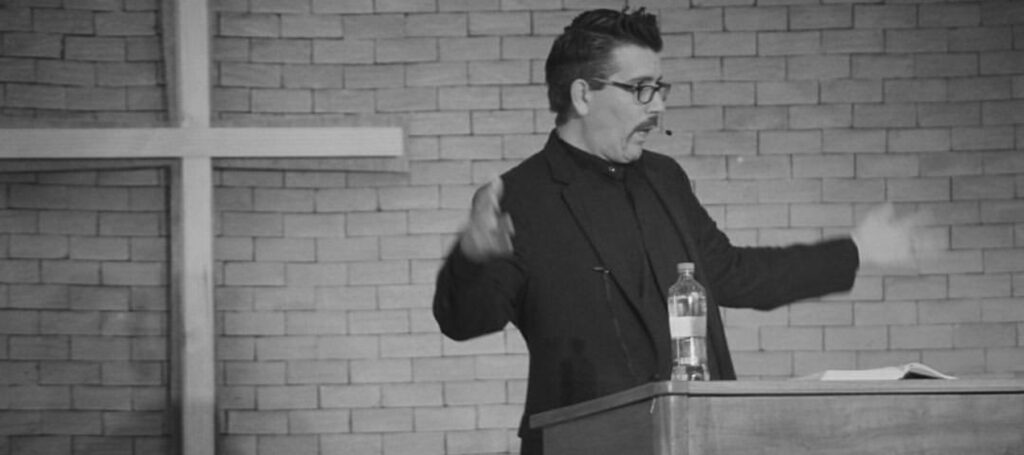“Daddy, I want you to go with me.” Dad, tiredly says, “But you know where it’s at. I’ll be right here.” “But, daddy, I want you with me; I want to hold your hand.” Our kids often need the assurance of our words as well as our presence. Nothing beats the presence of Dad. Nothing beats the presence of God to the child of God. We turn again in our series on God’s glory in Exodus to meditate on God’s glory in his presence.
“Show me your glory” (Ex. 33:18). The Lord had been so gracious in making a covenant with Israel (Ex. 24). He kept his promise to Abraham, Isaac, and Jacob. God was so gracious in putting up with their constant complaints in the wilderness. What did Israel do in response? They created a golden god (Ex. 32). God then threatened to burn in wrath at Israel and start all over again with just Moses (Ex. 32:10). In response to Moses’ intercession (Ex. 32:1–13) the Lord relented (Ex. 32:14). He then told Moses to go into the Promised Land without him (Ex. 33:1–3). But Moses made a stupendous request amidst sin and God’s anger: “Show me your glory” (Ex. 33:18). As one writer said, “This request is almost without parallel in human history up to this point.”[1] Moses wanted to see God’s glory in his presence.
What is the presence of God?
It’s a way of saying God himself. The language of presence communicates nearness, closeness, and intimacy. In the wilderness the Presence was signified by the pillar of cloud by day and fire by night. That’s how Israel knew the Lord was among them. When he threatened to send them to Canaan without this visible presence, there was a problem.
The visible presence of God was only temporary. He wouldn’t dwell among them in cloud and fire forever. It was typological, meaning, it cries our for something much greater. We know how the big picture of Scripture ends. “And the Word became flesh and dwelt among us, and we have seen his glory, glory as of the only Son of the Father, full of grace and truth” (John 1:14).[2]
We need his presence today. It’s that important. Without God’s glory in his presence we can do nothing.
The Glory of its Absence
The importance of the presence is seen in its absence. We often learn best what something is by what it’s not. This is the way of negation. For example, God is infinite, that is, not finite. We know this by experience as well. When you’re away for some reason from your friends, “absence makes the heart grow fonder.”
God’s Threat
How important is the presence of God to the life of God’s people? So important that God threatens taking to away: “I will not go up among you” (33:3). This is described as a “disastrous word” (33:4). It lead to mourning (33:4) and caused the realization that without his presence the Israelites weren’t distinct from the nations (33:16).
We see what this looks like in a personal way in David’s prayer of confession in Psalm 51. “Cast me not away from your presence, and take not your Holy Spirit from me” (51:11). It’s dreadful to the child of God to be without the Spirit. No doubt you’ve experienced something of this dread and distance from his presence. By our sins the Canons of Dort say we “sometimes for a while lose the sense of God’s favor” (CD 5.5). John Owen said, “The Lord Christ is pleased sometime to withdraw himself from the spiritual experience of believers.”[3] Those who have known grace know the experience of its absence.[4] You know how bad that feels and how important it is to regain it.
Moses’ Problem
But there’s a problem with Moses’ request. He asked to see the glory of God, “But,” the Lord says, “you cannot see my face, for man shall not see me and live” (Ex. 33:20). The Lord continues, “No one shall come up with you, and let no one be seen throughout all the mountain.” Even the animals couldn’t come near to graze (Ex. 34:3). Why?
First, because of God’s nature. “Can you see God?” One children’s catechism answers: “No, I cannot see God but he always sees me.” God’s a spirit and he’s invisible. He “dwells in unapproachable light, whom no one has seen or can see” (1 Tim. 6:16). If he chose to reveal his invisible being we’d be consumed. If God revealed himself in forms of cloud, fire, thunder, and lightning, and that caused the people to cower in fear, what do you think would happen if he came out of that cloud? When Isaiah saw the Lord in the form of smoke he confessed, “Woe is me for I am undone.”
Second, because of man’s nature. When you mix the holy presence of God with sinners, what do you get? Death. Like Moses, we need to face this about ourselves. We need to realize more and more over the course of our Christian life that sin is so deep. Sin’s a condition. An issue that comes up from the depths of the soul. It’s a matter of the heart. It’s not what goes in but what comes out. Do you face yourself daily and seek to fight your sinfulness? Are you expecting God to bless you and to show you his glory but you are unwilling to work on your attitude and actions? God’s glory in his presence is seen in its absence.
The Glory of its Effects
The importance of God’s glory in his presence is seen in its effects. God has a plan to answer Moses’ request despite the problem of his request. What a God!
God’s Answer to Moses
First, Moses stood upon a rock and when the Lord drew near, he would put him in a crevice. He covered Moses’ eyes with his very own hand. He then passed by with his “back parts.” Saved from God by God. God hides Moses to reveal himself. Amazing!
Second, God proclaimed his name (Ex. 33:19). Moses wanted to see God’s glory; God’s answer was to preach. Here’s a wonderful application for. Preaching has been turned into method and manipulation. Some might think of it like a lecture to get lots of heady information. What’s preaching? Proclamation by God himself through the means of a minister: “How shall they call on him whom they have not heard? (Rom. 10).
Moses wanted to see, but God spoke. Moses wanted glory; God spoke the gospel. This may seem foolish, but it’s the wisdom of God (1 Cor. 1:18–31). What did he speak? His name: “The Lord.” All his glory is found in that name. In Exodus 3 he proclaims his name: “I will be what I will be.” This means he’ll be faithful to his covenant promises now just as he was back then to our fathers. While in the cleft Moses heard, “keeping steadfast love for thousands” (34:7). Faithful in the past, faithful now, and faithful in the future.
God’s Answer to the World
All of this points us to Jesus. God couldn’t just come down else we’d have been annihilated. Instead, God hides himself by sending his Son to assume a human nature:
And the Word [that he said in verses 1–3 is eternal God] became flesh and dwelt [that is, tabernacled] among us, and we have seen his glory, glory as of the only Son from the Father, full of grace and truth [that’s the steadfast love of our passage]. (John bore witness about him, and cried out, “This was he of whom I said, ‘He who comes after me ranks before me, because he was before me.’”) And from his fullness we have all received, grace upon grace. For the law was given through Moses; grace and truth came through Jesus Christ. No one has ever seen God; the only God, who is at the Father’s side, he has made him known. (John 1:14–18)
There are two effects, then, of God’s glory in his presence.
Prayer of Confession
In Exodus 34:8–9 Moses prays in holy fear as he bows his head to the earth. He’s so struck by what the Lord has proclaimed that he falls before God in wonder and in awe. How we need to be struck by the glory of God and pray, “Pardon our iniquity and our sin” (34:9). Owen spoke about how we need the Holy Spirit to teach us how to pray concerning the depravation of our nature. Ask yourself, “Do I confess to God these things?”
The darkness and ignorance that is in our understandings; our unacquaintedness with heavenly things, and alienation from the life of God thereby; the secret workings of the lusts of the mind under the shade and covert of this darkness; the stubbornness, obstinacy, and perverseness of our wills by nature, with their reluctancies unto and dislike of things spiritual, with innumerable latent guiles thence arising,—all keeping the soul from a due conformity unto the holiness of God,—are things which believers have an especial regard unto in their confessions and supplications.
There are two kids of mourning. There’s mourning for the effects of sin and there’s mourning for the cause of sin. “Godly grief produces a repentance that leads to salvation without regret, whereas worldly grief produces death” (2 Cor. 7:10). Mourning for the effects of sin (worldly grief) is like Esau, weeping because he lost his birthright. Israel mourned for the cause of sin (godly grief). Godly grief applies to losing the sense of God’s favor I mentioned above. What’s the remedy? “Change [of] course by serious repentance” (Canons of Dort 5.5).
Prayer of Earnestness
The second effect of God’s threat to withdraw the glory in his presence is earnest prayer. Exodus 33:7–11 seem to interrupt the flow. This isn’t the tent of the tabernacle, though, but another tent. When Moses heard the disastrous word he prayed for God’s presence (vv. 12–16).
Besides Israel hearing a disastrous word, note three more textual details that impressed upon Moses the importance of intercession. What does the Lord call Israel in 33:1? “Depart; go up from here, you and the people.” It’s a definite article not a personal pronoun. He doesn’t call them, “My people,” but, “the people.” Then he goes on to say, “I will send an angel” (33:2). He doesn’t say, “My angel,” (cf. 23:23) or “the angel of the Lord” (3:2); only “an angel.” Note also where this tent of meeting is? “Outside the camp” (33:7) because of Israel’s sins. All of this comes into play when Moses prays: “Consider too that this nation is your people” (33:13) Israel’s godly grief and genuine repentance finds its voice in the prayers of Moses. It should in our prayers for the Lord’s restoration.
The Glory of its Blessing
Finally, the importance of God’s glory in his presence is seen in two blessings.
Promise of Rest
After Moses prays and pleads with the Lord to remember Israel was his peculiar people, the Lord says, “My presence will go with you” (Ex. 33:14). What a reversal! Instead of restless mourning, God’s presence brought rest to the people: “I will give you rest” (Ex. 33:14). It came in the form of “the land of which I swore to Abraham, Isaac, and Jacob…a land flowing with milk and honey” (Ex. 33:1, 2). No more running from Egypt, wandering in the desert, or temporary dwellings. Instead, God would give permanence in the land. All cries out for Jesus! The land was but a picture of something greater and lasting. Romans 4 says the promise to Abraham was for the entire cosmos. Our Lord promises those who are weary and heavy laden that he will give them rest of soul now. That’s the down payment of the rest that awaits us in eternity. “They will see his [Jesus’] face, and his name will be on their foreheads” (Rev. 22:4).
Promise of Assurance
“My presence will go with you” (Ex. 33:14) also brought the blessing of assurance. As Moses prayed, the Lord’s visible presence of cloud and fire distinguished them from the world. What about for us? Jesus isn’t here among us. He cam;, he left. What assurance do we have?”
He hasn’t left us as orphans. He’s sent his Spirit into our hearts and given outwards means of his presence. God marks you out from the world with baptism. He distinguishes you from the world in the Lord’s Supper. While the world’s running around playing sports, going to the beach, on vacation, shopping on the Lord’s Day, you have the Lord’s Day as a visible sign of distinction (Ex. 31).
Conclusion
Let me plead with you to plead with for God’s glory in his presence. “O Lord, please let the Lord go in the midst of us…and take us for your inheritance” (34:9). Owen said “the nearer one is unto God the more earnest will be His desire after the full fruition of Him.[5] The Psalmist said the Lord’s love is better than life. We’re such a sinful, complaining, grumbling, and murmuring people. I know this from experience, don’t you? Our worship is so heartless. The desire for holiness is cold. Our appreciation for what God does week in and week out is so little. How can we expect anything good to come of our churches? Perhaps it’s small and insignificant. Yet if God goes with us by his Holy Spirit we can expect him to bless us above all we can ask or think (Eph. 3:20). He’ll bless us with the glory of his presence.
[1] John J. David, Moses and the Gods of Egypt: Studies in Exodus (1971, 1986; Winona Lake, IN:BMH Books, third printing 1998), 304.
[2] Owen said Exodus 3 was a type of the presence of God in the person of the Son. Owen, Works, 1:311–312.
[3] “The Glory of Christ,” Works 1:318.
[4] “The Glory of Christ,” Works 1:318.
[5] Owen, Works, 1:66.
For previous articles in this series:







